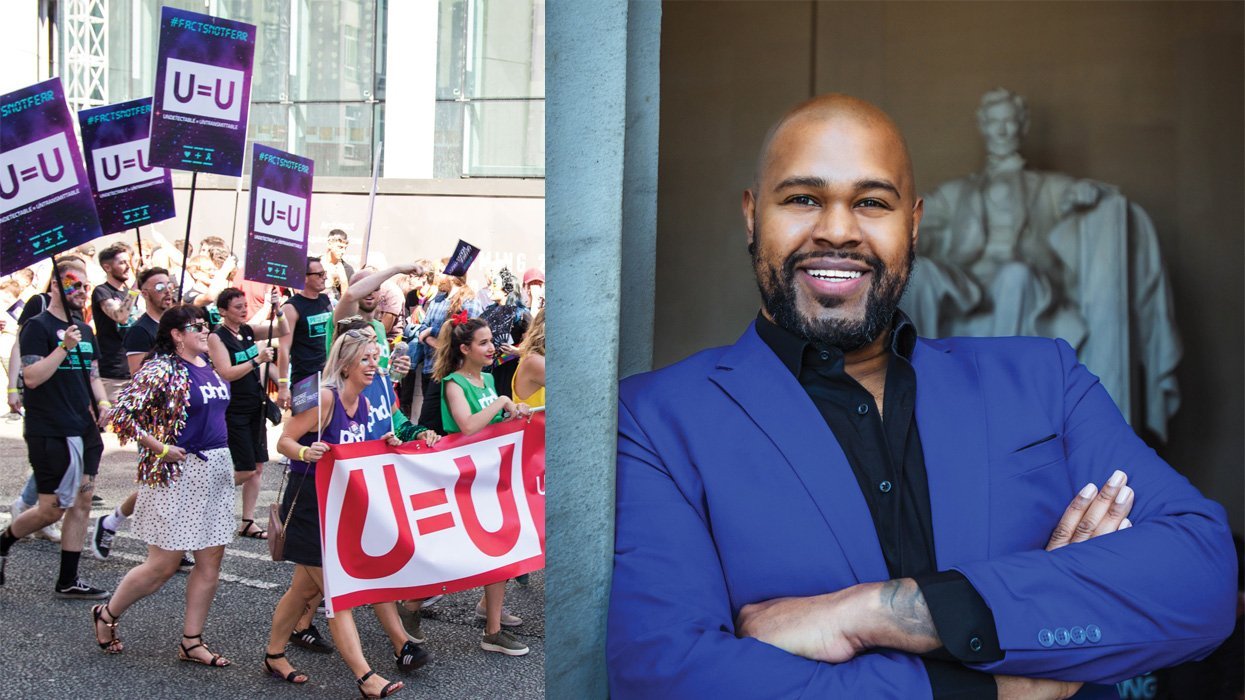As a friend once said to me: If you’re going to live, you’re going to get older. It kind of comes down to that, right? Time marches on, as they say.
Getting older means all kinds of things, some good and some, well, not so good. If you are over 50 and living with HIV, this time of life can present opportunities for growth but also some unique challenges, not only physically but also emotionally.
Here’s what my clients (let’s call them Lisa, Alan, and Tom) told me about their experiences:
Lisa, age 53, has been living with HIV for over 20 years. She’s feeling great, happy in her career and her relationship. “I look at myself in the mirror and I ask myself, ‘How did I survive this long?’” she says. “I feel lucky. And I can’t help but think about the people I knew who weren’t so lucky. I feel like I owe them in some way. All these years I got that they didn’t get? Have I used them well?”
Alan just turned 60. He found out he was HIV-positive a couple of years ago. At the time of his diagnosis he was eligible for full retirement and his company was starting to push him towards the door. He decided to take them up on their offer soon after his diagnosis. “My diagnosis was a real shock to me, in a lot of ways,” Alan recalls. “It was a wake-up call to get more serious about my life, to do something more meaningful. I’m still trying to figure that out. I feel wise some days, and pretty inexperienced on others. Where do I fit?”
Tom, who is 56, was diagnosed in 30 years ago. He and his partner, who is also HIV-positive, do some volunteering at an HIV clinic in their spare time. He says, “I want to feel proud of myself for being a long-term survivor. I want to be an inspiration to the younger guys. But I feel like they look at me as if was from another planet. I want to say, ‘Come on, guys! Don’t you want to know how I did it?’ I’m not sure if they think my life has anything to do with their lives.”
So, what about you? Are you over 50 and living with HIV? Regardless of whether you’re a long-term survivor, recently diagnosed, or somewhere in between, chances are, you remember what it meant to have an HIV diagnosis before it became a treatable condition. And having lived through that time makes you a veteran, with a unique perspective on what it now means to live with HIV.
So what’s life like for you? Are you taking good care of yourself? Your body doesn’t function at its best without some regular maintenance. And to live at your best, your mental health also needs some regular attention. Here are some ideas to help you make this time of life the best time of life:
Be compassionate, starting with yourself. Watch out for self-criticism and woulda-shoulda-coulda thinking. If you’re HIV-positive, you know how easy it is to fall into that trap. You’ve come a long way in the face of a lot of challenges. Give yourself some props for doing the best you can to take care of yourself. Focus on what you’ve done and not what you haven’t done. Show yourself some kindness, and you’ll become even better at showing it to others.
Make plans and get them on your calendar. You’re scheduling work, doctor’s appointments, a tune-up on your car — but what about the things you do to for your emotional self-care? It’s all too easy to fall into a rut at any time of life. But those good intentions stay just that if you don’t pin them to a date and time. Time with friends? A long walk? A movie? Get them on your schedule, too.
Always have something to look forward to. Each week, each month, each year. It doesn’t matter how big or small it may seem. You need something.
Watch the alcohol. I have seen too many of my over-50 clients fall into the trap of hanging out at their favorite watering hole, with happy hour stretching into happy night. Don’t forget that alcohol is at best a temporary solution to loneliness and other difficult emotions but it is also a depressant. Exercise the same caution with any other substances you might be using.
Be careful about all that alone time. Sure, getting older can be a time of contemplation and reflection and just taking it easy. And yes, having to be the one to initiate those get-togethers can feel like a chore, especially when you feel like you’re always the one doing it. But don’t let yourself fall into a pattern of alone time that turns into isolation.
Stick close with your support system. We all need to other people to help us get through the hard times in life and to celebrate the good times. What’s your friendship network like? Do you have family members you are close to? If you’re partnered, are you and your mate working together to support each other? Make the effort to stay in touch with people. And if you’re lonely, think about getting involved with local groups, community activities, or a nearby LGBT center to get more connected.
And speaking of being partnered, it’s not all about being in love. My clients who aren’t in a relationship often want to talk about how incomplete their lives feel, and how lonely they are, without someone to share their life with. I encourage them to do two things. One, to get out and meet more people. And secondly, to stick close to the friends they do have. Your happiness in life doesn’t have to depend on being with that one romantic partner.
Keep pushing yourself. Don’t get stuck in the familiar. Look for new ways to expand and grow. Take up a new hobby. Get involved in a cause. Take a class. Take on new responsibilities at work. Switch up your workout. Starting from wherever you are, get a bigger life.
Give back. Volunteering is compassion in action. Find ways to share yourself. Check in with somebody who needs some support. Find a community group that needs your help. Volunteering is a great way to stay involved in the world. And who knows? You might make a few friends along the way.
Manage your stress. The stresses of life aren’t going to magically disappear, but we can learn to live with stress and not be constantly overwhelmed by it. Build stress management into your life. Relaxation techniques. Exercise. People time. A spiritual practice. Healthy eating. Figure out what helps you to keep your stress under control and build it into your daily life.
When the going gets tough, the tough go shopping. Shrink shopping, that is. If you’re just not feeling it, and aren’t sure how to get your mojo back, then consider talking to a mental health professional. A counselor, therapist, psychologist, or support group can all work in a pinch, and there are therapists who specialize in clients coping with HIV or AIDS as well as other chronic health conditions. Get an objective perspective on what’s going on in your life along with some new coping skills. Don’t go through this alone.

















































































